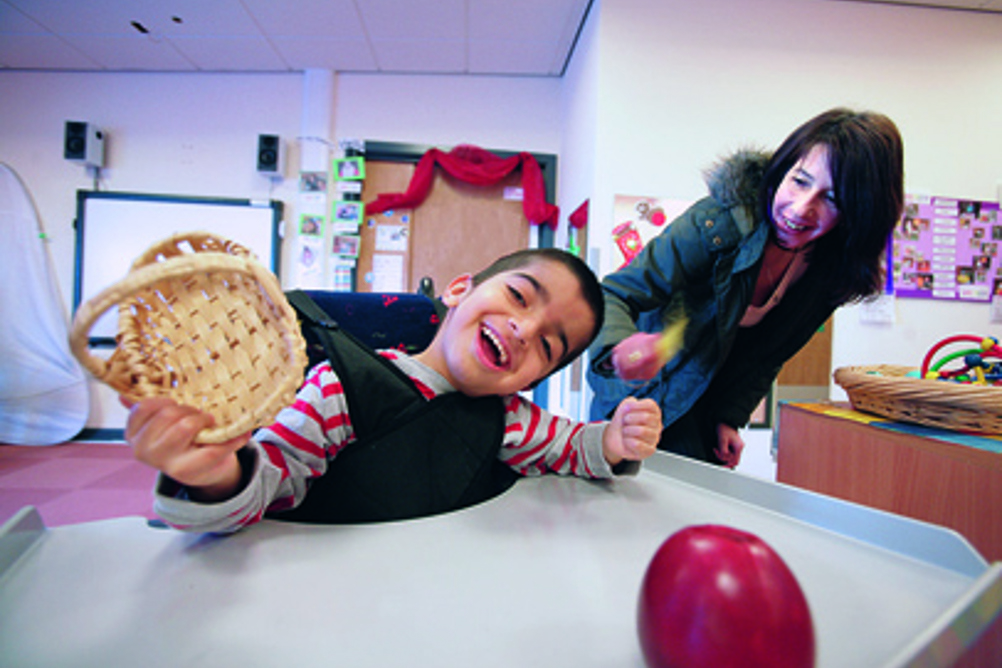
We believe that our children only have one crack at their education,' declares Cate Tindall, early years co-ordinator at Newfield School in Blackburn, Lancashire, which provides education for children with Complex Learning Difficulties aged two to 19. It is this positive attitude that instils confidence in the parents that their children can and will achieve to the best of their abilities in relation to their individual special educational needs.
'Many parents have no preparation for having a child with disabilities. It should be one of the happiest times, but all their hope crumbles. Everything about their child can become very medical and clinical,' says Ms Tindall. 'We can help parents come to terms with their child's particular individual needs, reassure them and make them feel that they are doing such an important job. As the parents they are the child's first teacher.
Register now to continue reading
Thank you for visiting Nursery World and making use of our archive of more than 35,000 expert features, subject guides, case studies and policy updates. Why not register today and enjoy the following great benefits:
What's included
-
Free access to 4 subscriber-only articles per month
-
Unlimited access to news and opinion
-
Email newsletter providing activity ideas, best practice and breaking news
Already have an account? Sign in here
